Originally published on quorummedia.xyz on September 22, 2022.
Writer: Samantha Marin
This research was funded by a grant from the DAO Research Collective as part of their mission to accelerate DAO functionality. Thank you to the DRC for their help in refining this idea and editing the article.
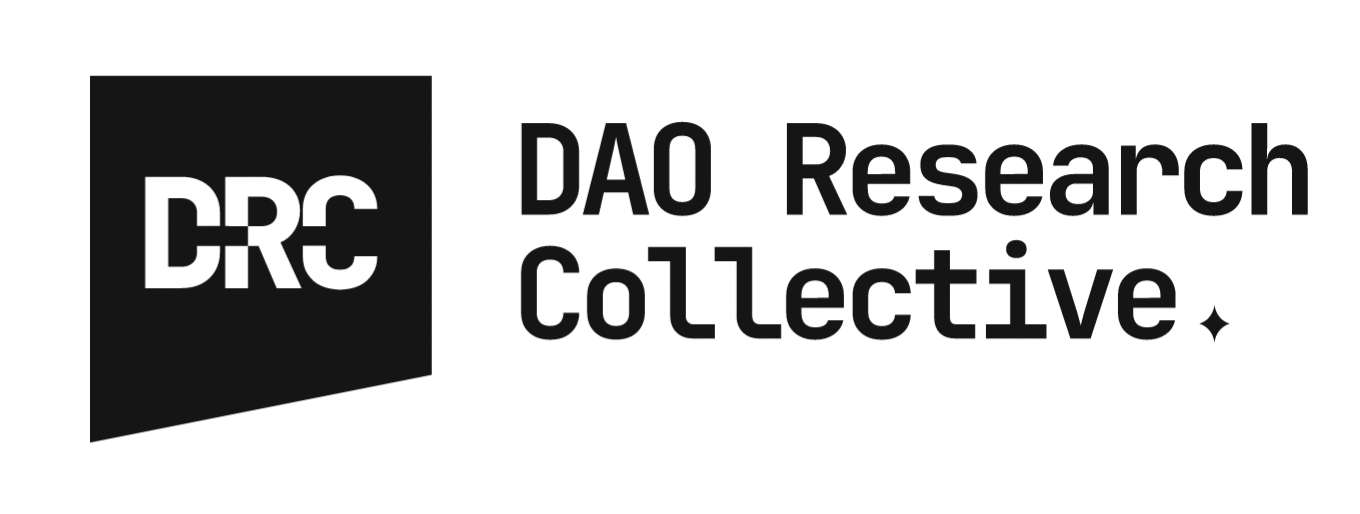
Today, DAOs are often governed like corporations with a shareholder model. In this model, you can only give governance rights to one group of individuals, and other people end up using shadow or accidental hierarchies and opaque forms of power to get things done. But what if DAOs operated less like corporations and more like states? What if you could give governance rights to multiple groups?
Vitalik has some ideas:
Because DAOs do not have a sovereign above them. . . it is precisely the design of sovereigns (political science), and not corporations, that DAOs have more to learn from.
—Vitalik Buterin, DAOs are not corporations: where decentralization in autonomous organizations matters
**There are two DAOs that are already experimenting with the learnings of political science rather than corporations: jokedao and the Optimism Collective. **
These DAOs are experimenting with bicameral governance to solve the inherent coin voting problem: the wealthier you are, the more tokens you can buy and the more influence you have.
“If you’re a state, you don’t want the people with the most money to have the most power,” said David Phelps, co-creator of jokedao. “That’s not creating an inclusive environment for new members to come in and be able to participate.”
This emergent bicameralism is fascinating, and could be a landmark moment for new governance models in DAOs: models built more like the United States or Japan than Microsoft or Meta. These governance experiments give power to two sides: the wealthy, otherwise the sole holders of power under the corporate model and, on the other side, the contributors.
Why Bicameralism?
A bicameral system of government has two legislative chambers – two governing bodies with the power to put rules in place. Much of the world uses a bicameral system: 40% of the world’s legislatures are two-housed.
This system is designed to share power between two different groups by allowing them to elect their own representatives: one group might be “the elites” and one might be “the multitudes.”
For example, the British Parliament has a House of Lords and a House of Commons, two bodies with potentially conflicting interests that moderate one another’s power.
The U.S. has its own version of a two-house model. The Senate has two senators from each state, meaning that each state has its interests represented equally. The House of Representatives has different numbers of representatives per state based on state population, so the quantities of people are equally represented.
Bicameral systems introduce checks and balances and give states more stable and equitable governance. These checks and balances are designed to mitigate the risk that any stakeholder becomes too influential, and to limit extremist actions.
Bicameralism in web3: playing with new paradigms
Web3 organizations have started instituting bicameralism in the form of one house for token holders one for NFT holders. Given recent interest in 1-person-1-vote methods, as well as the drawbacks of coin voting governance giving too much power to a small group of stakeholders, this two house model is becoming more attractive.
NFTs satisfy the one-person-one-vote need, in the same way the Senate in the United States represents each state equally with two senators. And coin voting pleases the “skin in the game” folks, much like the House of Representatives is roughly based on the population in each state. Each side has an area where they can exercise influence, and they “check” each other. Bicameralism might allow for the best of both worlds in web3—let's explore.
jokedao: Playing serious games with governance
The governance setup
jokedao is building and testing governance primitives through a game called the jokerace. The DAO is one of the most prominent (if not the only) examples of a community-run governance experiment that lacks a centralized committee, association, or other core body that leads it. And, if it proves the concept, it could change the governance landscape for DAOs today.
jokedao has a two-house structure: an NFT House and a Token House.
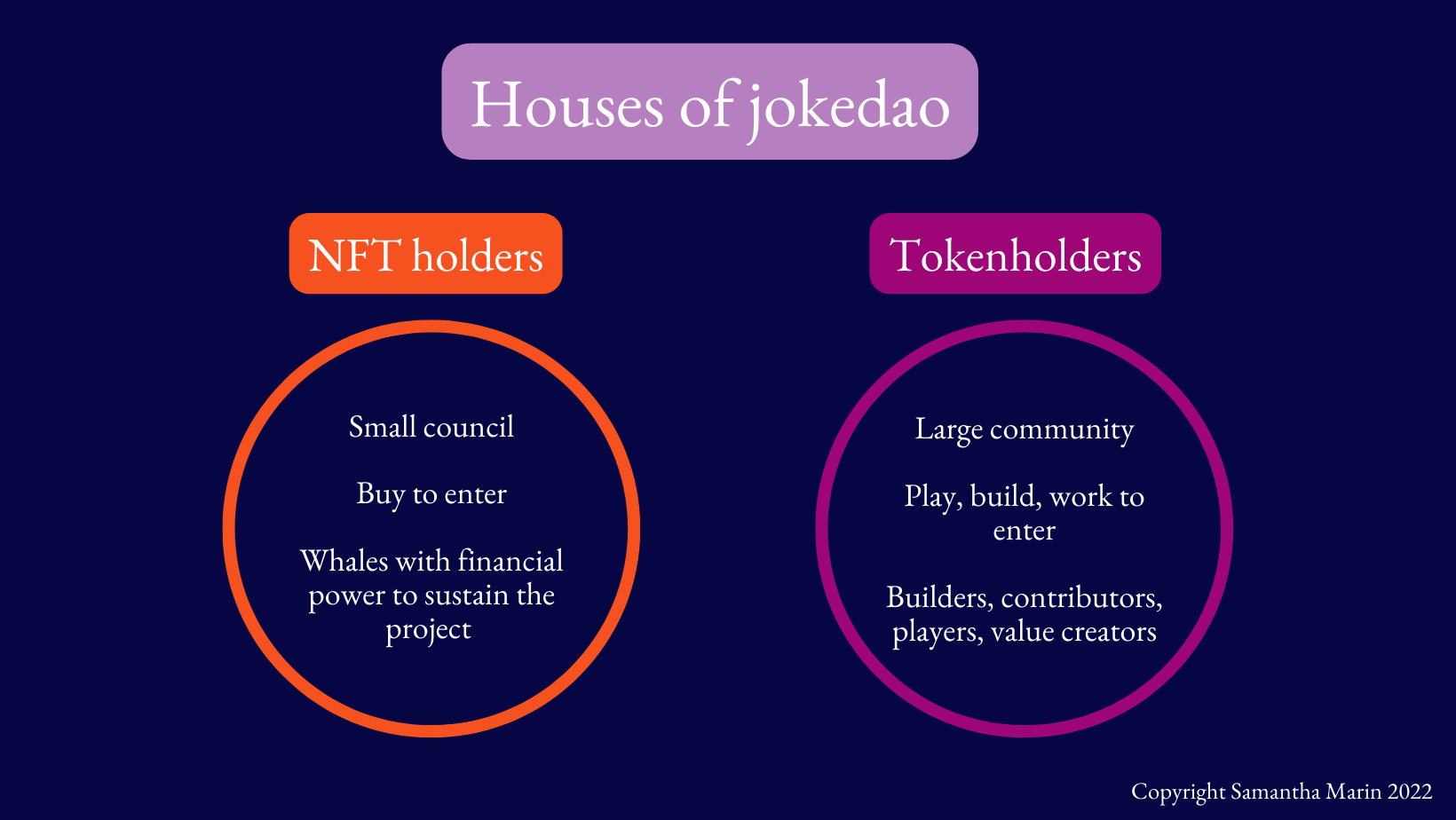
jokedao’s NFT house is for those who purchase the NFTs on Opensea. jokedao’s NFTs are membership tokens that allow holders to join the Joke Council and determine the future roadmap of the jokedao project, set joke game rules, draft proposals to put before JOKE holders, govern the treasury of NFT revenue, and veto decisions coming out of the house of $JOKE.
The house of $JOKE, on the other hand, governs jokeraces. In the foundational jokenomics article, the jokeraces are described as “a governance game engine that can be used for contests, curation, bounties, endorsements, giveaways, user-generated roadmaps, governance, and more.” This house, the token house, is geared toward those who are actively contributing—they earn the token by participating in the game, and only a small percentage of the token is available to purchase on Uniswap.
In other words, the NFT house is for the whales ready to deploy capital, and the token house is for the contributors who are working to earn their tokens.
While there are many nuances and other parameters within the roles of the houses, here's my distilled version of roles:
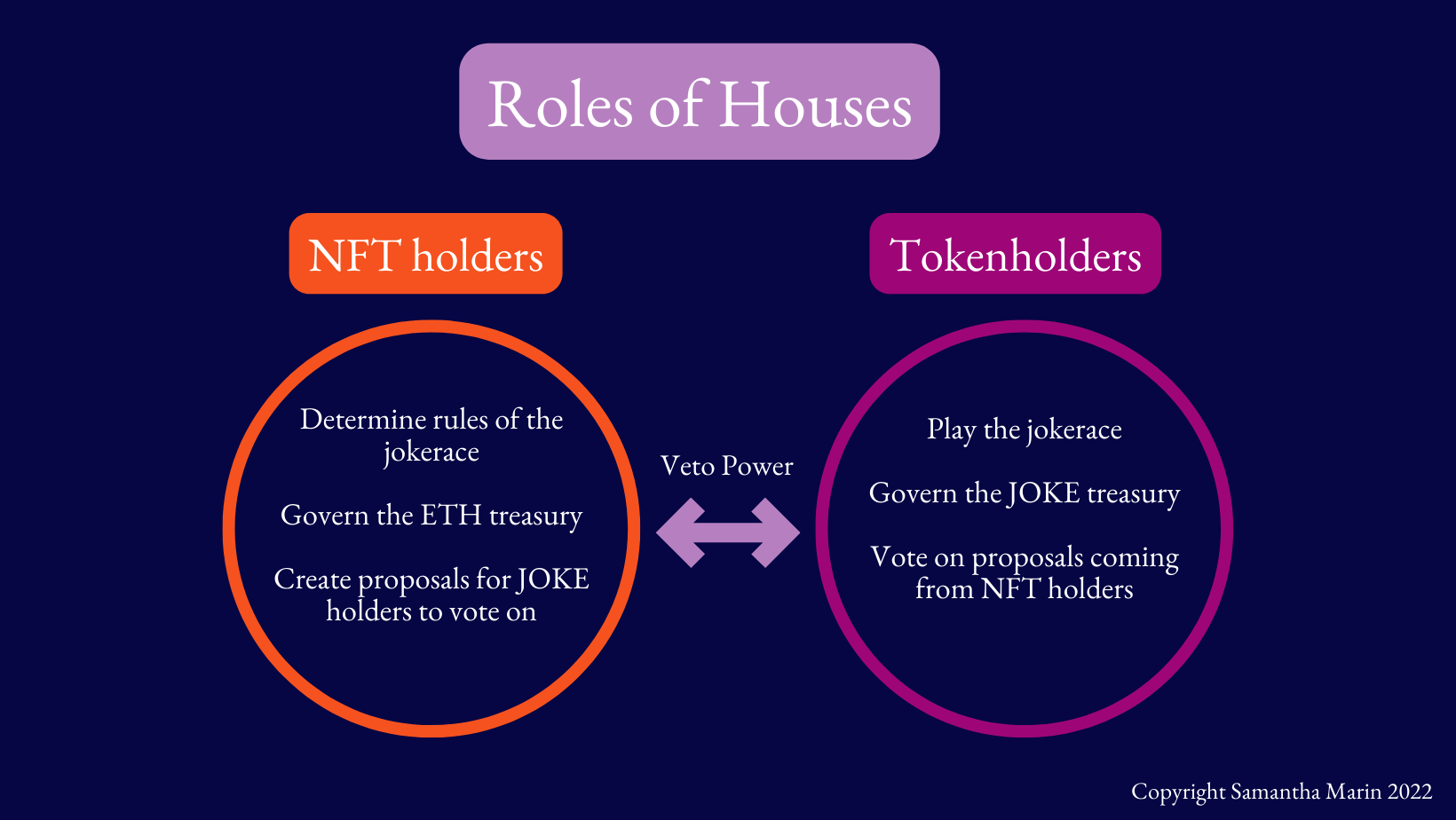
“If you contribute and you work, you’re actually getting rewarded much more than you would be able to get on Uniswap,” said David Phelps. “The tokenomics is designed to actually reward the people who are working and participating, rather than the people who just buy their way in.”
Of course, Phelps admitted, people could sell the $JOKE tokens they earn by winning the game, thus increasing Uniswap liquidity and allowing more whales to purchase them. But the principle of the game remains the same: contributors are rewarded in JOKE for working, and whales purchase the output (jokes) via NFTs.
Phelps said that one of the main reasons they chose a two-house governance structure is because jokedao truly is two products: the jokerace (the game) and the platform (the jokeraces, which can be forked, split, or shipped to other DAOs).
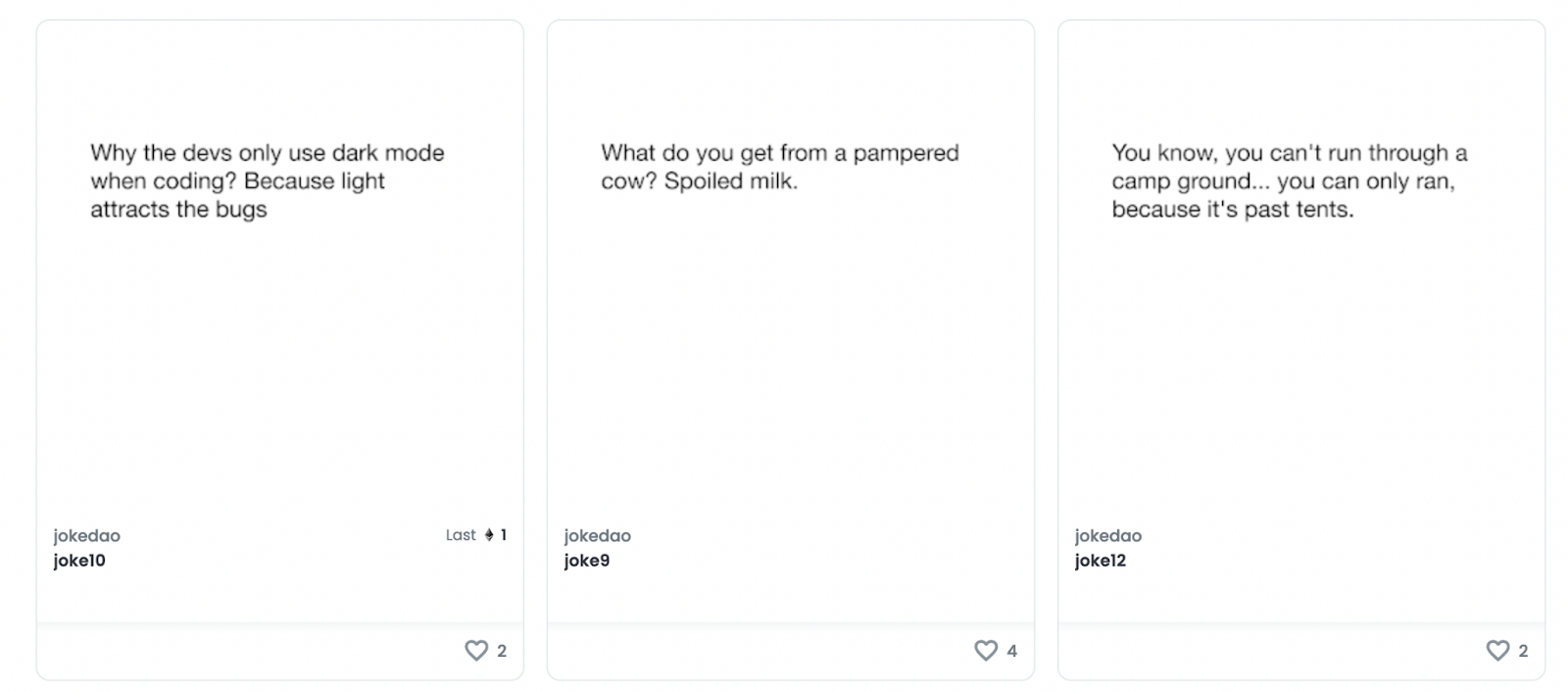
This makes the separation of powers more clear: the jokerace parameters can be set by the NFT house, while the platform can be experimented with in the token house.
The game
jokedao generates revenue by selling NFTs of the winning jokes of its jokeraces. This revenue supports the project, but also goes toward funding public goods. The DAO itself does not exist purely to make jokes, even though its demeanor may suggest otherwise. The jokes are simply a byproduct of the governance testing.
The game, the jokerace, is the testing ground for the jokedao tokenomics scheme.
Every time there’s a jokerace, JOKE holders cast their tokens to vote on what they think will be the second-best, third-best, or fourth-best joke, depending on what the NFT holders decide that week. That’s right—the joke that comes in “first,” or gets the most tokens, doesn’t win; the one that gets the second-most, third-most, fourth-most, or even fewer tokens does (depending on the parameters for that week). This prevents JOKE whales from choosing the first place joke every week by allocating all their tokens to it. It also introduces a unique coordination problem—players need to allocate their tokens to the joke they think will get the second most tokens, not the most.
The “winning” joke, meaning the joke with the second-most tokens allocated to it, is then minted as an NFT. In the case where the council chose the third or fourth joke to win, that would be minted instead. These are available to purchase on Opensea and are used as membership for entry into the council.
The person who submitted the winning joke gets more JOKE tokens, therefore accumulating more voting power. But the people who voted on the “winning” joke also get rewarded with more JOKE tokens proportional to the amount of tokens they allocated to it.
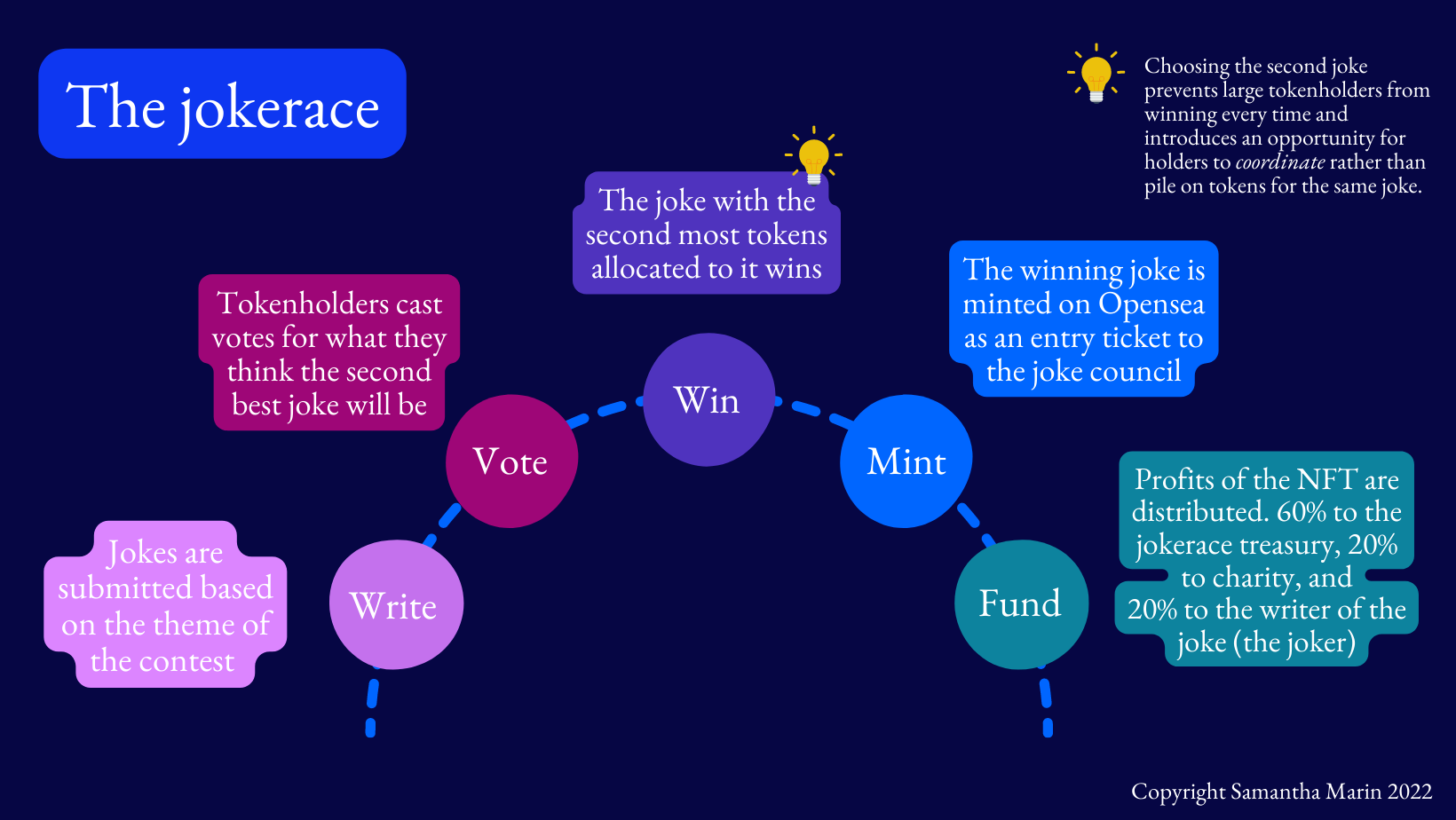
And there are even more layers to the game, including penalization for voting on the jokes that lose, vote decay (the earlier you vote, the more rewards you get, the later you vote, the fewer rewards), and themes that would allow one-time groups to join, such as specifically-invited DAOs.
The coordination ramifications are far-reaching, and an entire article on the game theory of jokedao could be written. But for now, you need to know that the jokerace is where governance is put to the test.
The ramifications
The jokedao bicameral model solves one massive problem in web2 that’s unrelated to governance: the user research problem. Right now, users are generally considered a black box in the web2 space. Companies need to invest significantly into user research teams, who then seek out users willing to share insights with them. But in jokedao, the JOKE holders propose product features and concepts, a “user-generated roadmap,” for the builders.
The jokedao creators envision this as “a new paradigm of communities emergently voting on features they’d like a core DAO team to develop while letting that core team have full creative vision.” The product builders would have direct access to user research and insights, because the users would be the ones constructing the roadmap.
In essence, the JOKE holders can create a user-generated product roadmap for NFT holders to follow, which is unique because products built in a DAO can be overly-open and disorganized, or overly centralized and opaque. jokedao creates a model where a small, centralized product group can be guided by the users of the product.
The tokenomics paper reads:
By creating one house for those with financial power to sustain the project and one house for the actual builders and players to grow the project with their contributions, jokedao ensures that the powerful governors are always beholden to the actual contributors who give value to the system in the first place.
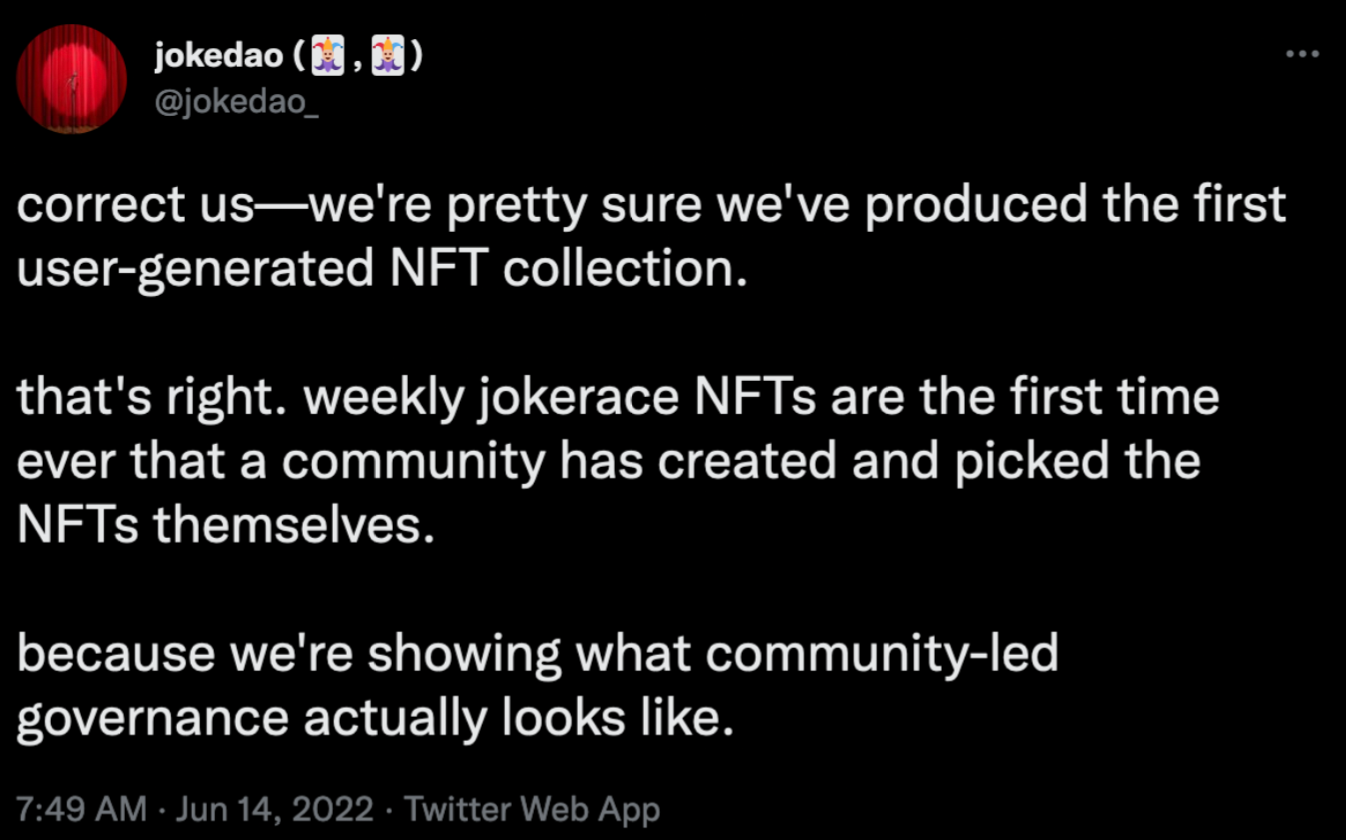
Tweet from jokedao.
A governance system that incentivizes both financial power and contribution, and solves for the product-market fit problem? jokedao’s model is pretty exciting for the DAO ecosystem. By giving both the working contributors and wealthier whales a say, jokedao is giving a voice to two major groups in the jokedao ecosystem.
But bicameral governance experiments in DAOs don’t stop there. Optimism, one of the biggest names in the Ethereum ecosystem, is getting bicameral, too.
The Optimism Collective: funding public goods, bicameral style
Optimism is a Layer 2 blockchain, or rollup, that seeks to make transacting on Ethereum faster and cheaper. It generates revenue through the payments users make to transact on the network. Instead of this revenue going to investors, it's reserved for public goods funding.
The Optimism Collective is governed by two houses: The Citizens’ House and The Token House.
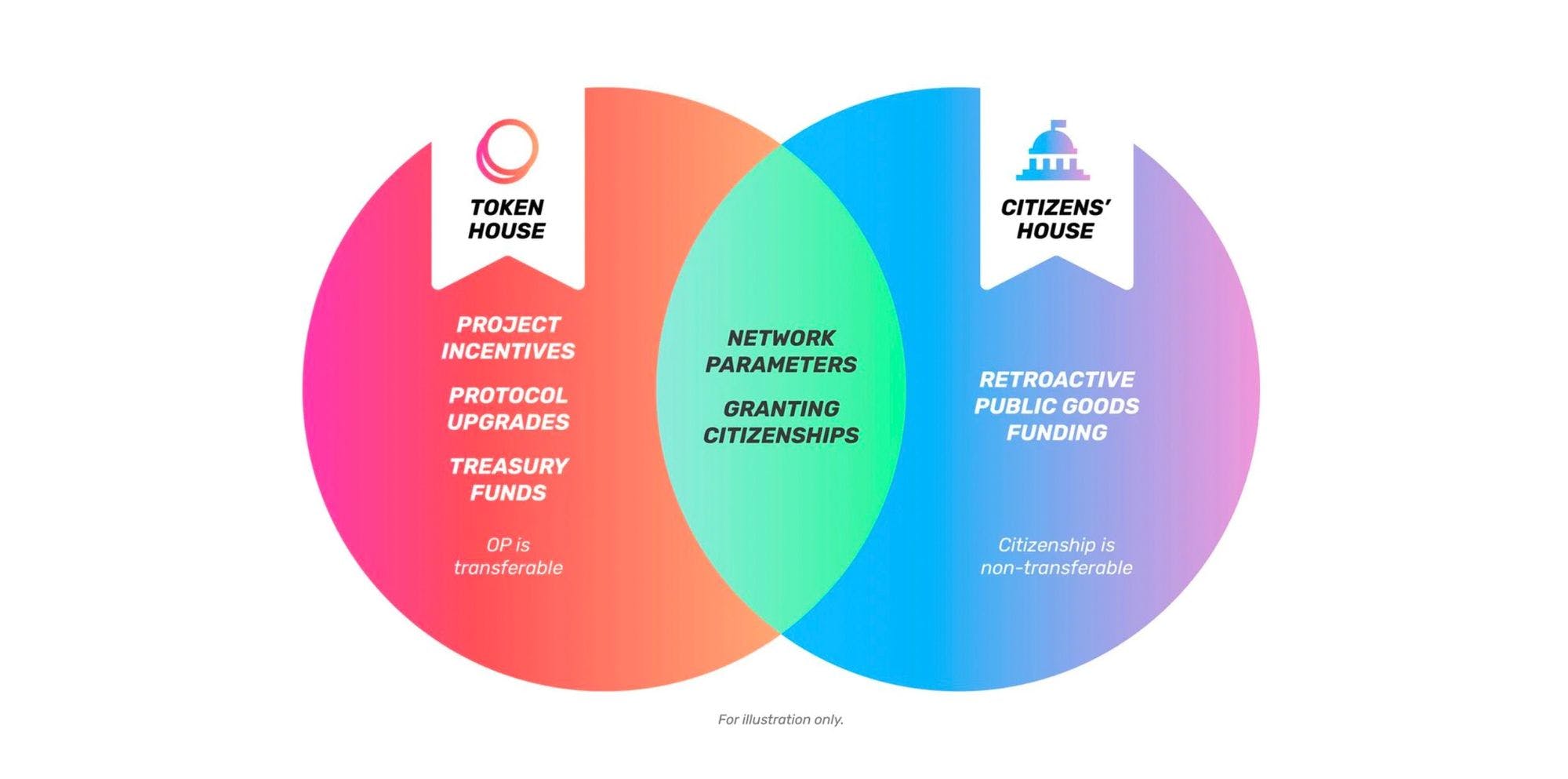
The Citizens’ House has domain over retroactive public goods funding, which is a core objective of the collective. Citizenship is tracked through soulbound NFTs, which are non-transferrable NFTs that cannot be traded, and which are granted by the Optimism Foundation (the core team building Optimism).
The Token House has domain over project incentives, protocol upgrades, and treasury funds and is governed with the Optimism (OP) token.
Both houses have domain over network parameters and granting citizenship (who receives citizenship, a.k.a soulbound NFTs).
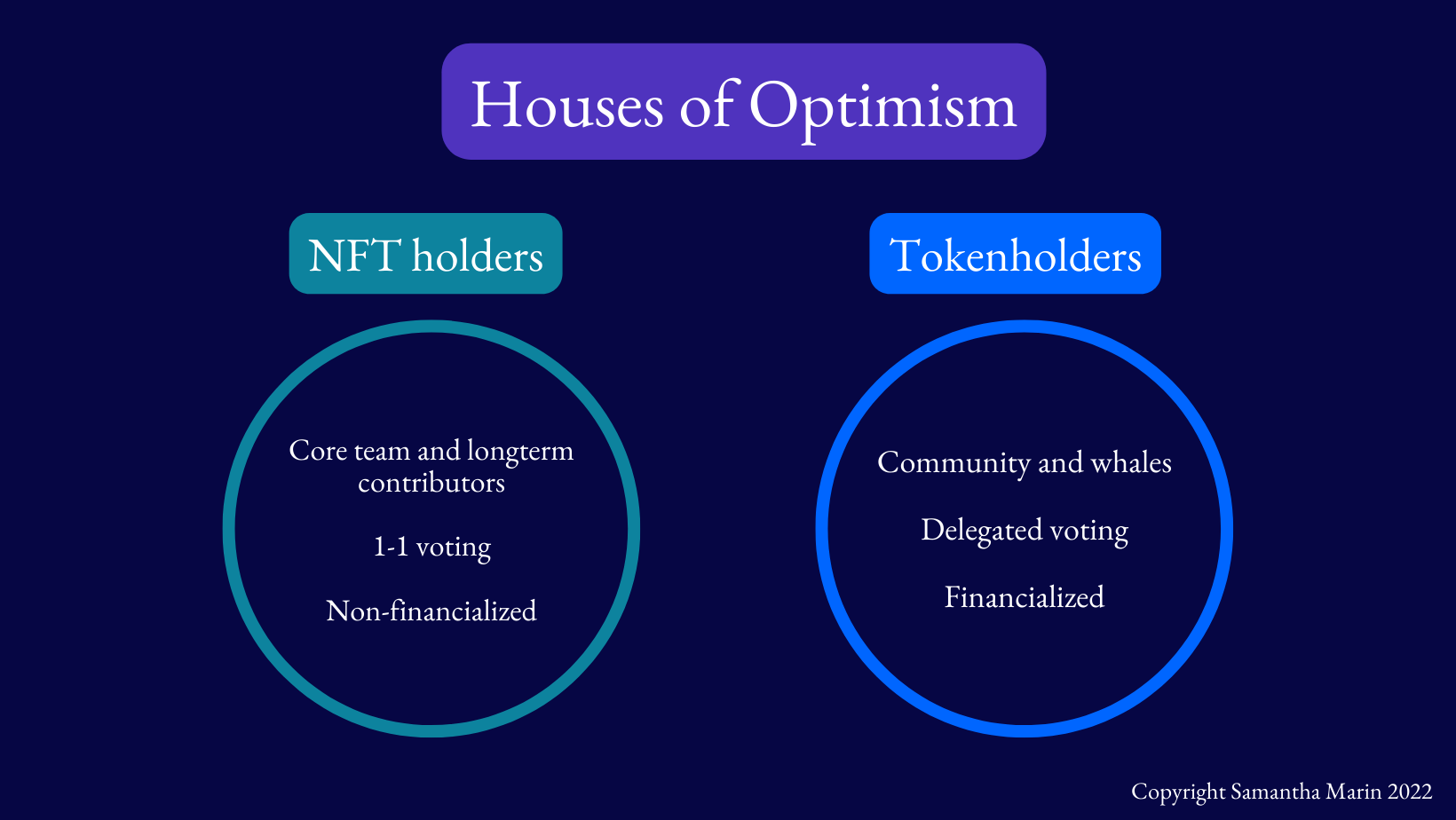
The houses in Optimism are flipped from jokedao. The soulbound NFTs of the Citizens' House are not financialized, while OP is tradeable on exchanges and can be bought by whales. Therefore, in Optimism, the token house serves whales while the NFT house serves the longterm contributors, builders, and core team.
jokedao's choice to restrict JOKE on exchanges created an environment where you can only work to earn the token, whereas the NFTs are available on Opensea every week.
It's interesting to see the two approaches and how a token house does not necessarily serve the whales in the governance system. jokedao and Optimism are both playing with governance levers in unique ways.
Currently, the Optimism Foundation is stewarding the collective and plans to dissolve once the collective is ready to operate on its own. This progressive decentralization of an organization has become common in the crypto and DAO space, as core and founding teams are often not ready to hand over control before setting certain mechanisms in place to protect the project. But, this means the collective is not yet fully decentralized (and, given that we’re still defining the word decentralization when it comes to humans interacting, I’m not sure when we will ever know if something is “truly” decentralized).
How both houses will vote on network parameters and citizenship is also left to be determined, since they would have different voting methods and could therefore be hard to merge.
The ramifications
The Optimism Collective is paving the way in exploring the governance use cases for soulbound NFTs, even though it may not be everyone’s first choice of NFT distribution. Soulbound NFTs are controversial because attackers, governments, or other malicious actors could assign these nontransferable “identities” to people without their permission, leaving the owner unable to remove the NFT. So, the fact that the Optimism Collective is implementing them from the get-go is bold and industry-defining.
Another important ramification of this governance setup is that Optimism is a high-profile network that is making a clear statement that a simple token voting setup is not the best solution. They could have implemented a basic coin voting structure like the other big names in Ethereum—players such as Uniswap and Aave—but chose a more experimental structure that hasn’t yet been battle-tested.
However, they have made a few more traditional choices. For example, tokenholders can delegate their tokens, and many of the delegates are familiar faces from other DAOs with a delegate structure. It's possible that the Optimism Collective turns to a primarily delegated voting structure with the soulbound NFTs just representing members of the core team and not actually used in governance.
Even though it’s still too early to tell if Optimism’s structure will prove fruitful (we have less data than jokedao) I’m hopeful and excited by the fact that such a big player is getting their hands dirty with an NFT house.
Drawbacks of bicameral governance
Both Optimism and jokedao lose something crucial with their governance structures: the ease of onboarding new members that accompanies a simple coin-voting model.
“The biggest challenge is that you’re always trying to balance between the most advanced system that in theory is best, with—in a viral world that prioritizes marketing—the system that is simplest to communicate to users,” said Phelps. He explained how OlympusDAO had an incredibly complex tokenomics scheme which was distilled into the simplistic 3,3 meme, helping it go viral. But if the team had led with the complicated details when trying to onboard new users, the Olympus model might not have had the same viral quality.
Onboarding and, more simply, explaining their model to users, is the bridge that jokedao and the Optimism Collective have to cross. Will they find a memeable method to explain via the short-attention-span-style of writing on Twitter? If they do, wide success could be around the corner.
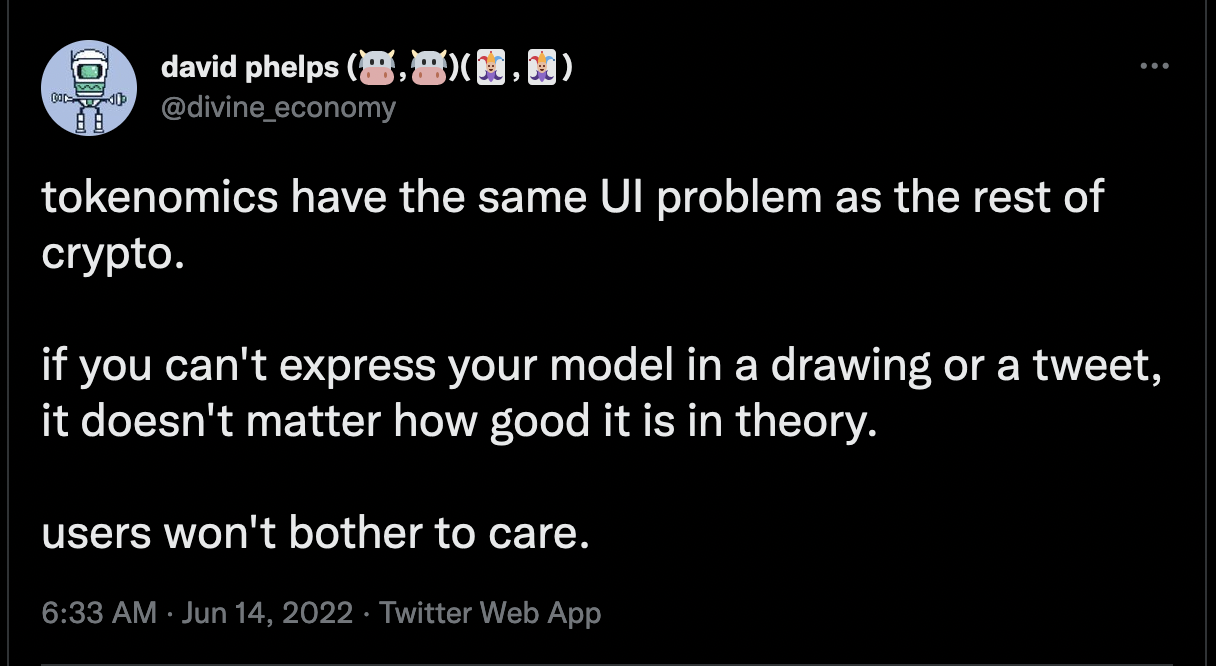
Another drawback of bicameralism is deadlock. Two-house systems are famous for creating a slow-moving government. Proposals (bills) can get stalled for months or years. Government shutdowns occur. Progress is slow. In other words, it’s not always a great fit for DAOs, unless it is carefully designed specifically for DAOs.
However, there is an argument to be made around whether these drawbacks are features or bugs. Slow progress means extreme changes don’t happen on the fly, and people can take time to think about the consequences of the proposal passing. While “bicameral” and “slow-moving” aren’t synonyms, they could be close cousins, and DAOs will need to tread lightly when designing their systems.
A bicameral future for DAOs requires a 3,3 meme and an experimenter’s mindset
DAOs operate in an even more unpredictable space than the organizations of the past (something I’ve written on before). But when it comes to predicting the future of DAO governance and tokenomics, I’d venture to say that until a simple proof-of-concept for bicameral governance is achieved, DAOs will continue to operate in their token-holder-heavy, single-house structures. It's just too risky for many DAOs to take an experimental leap with their community and treasury, especially if they're deploying on-chain governance contracts from the start.
A combination of ERC20 and ERC721 governance is complicated, and there are few resources available. So, new DAO builders may shy away.
But, if we come up with a meme-able version of bicameralism, simplified down to something like Olympus’s “3,3” Twitter meme, there could be an explosion in bicameral governance.
I’m hopeful of more simple structures and models to make bicameral governance more accessible and safe for builders to try. And, I’m optimistic that we’ll see both jokedao and the Optimism Collective ship great products, fund amazing public goods, and create evangelists who can exchange ideas and experiment with new bicameral structures.
DAOs taking the steps to operate more like states is something that makes me bullish on the space. Until we can address the old paradigms we don’t want, and cycle in the new paradigms we do want, we’ll be locked into one style of voting. In the meantime, jokedao and the Optimism Collective are pushing us one step further in the evolution of DAO governance.
Recommended Reading
-
Moving beyond coin voting governance by Vitalik Buterin
-
DAOs are not corporations: where decentralization in autonomous organizations matters by Vitalik Buterin
-
jokenomics by jokedao
-
Introducing The Optimism Collective by The Optimism Collective
Thanks again to the DAO Research Collective for the grant to write this piece and their help with editing!
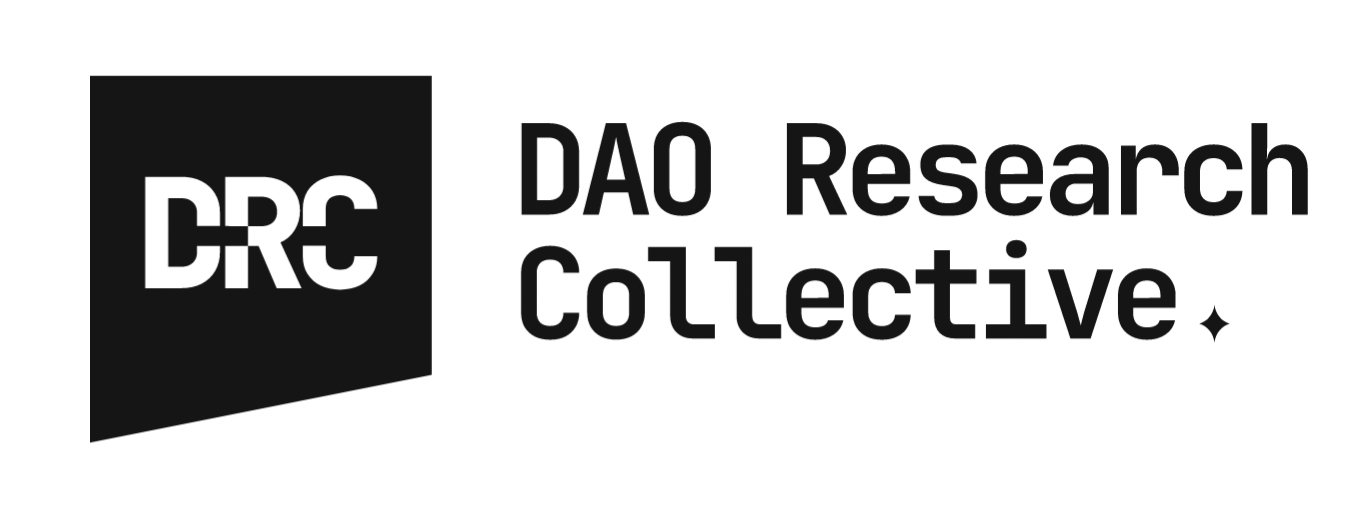
The DRC is doing a lot of cool things! I recommend checking them out on Twitter.
Quorum is a metalabel for creators shipping work about DAOs. Check out Quorum’s newsletter, podcast, and Twitter.